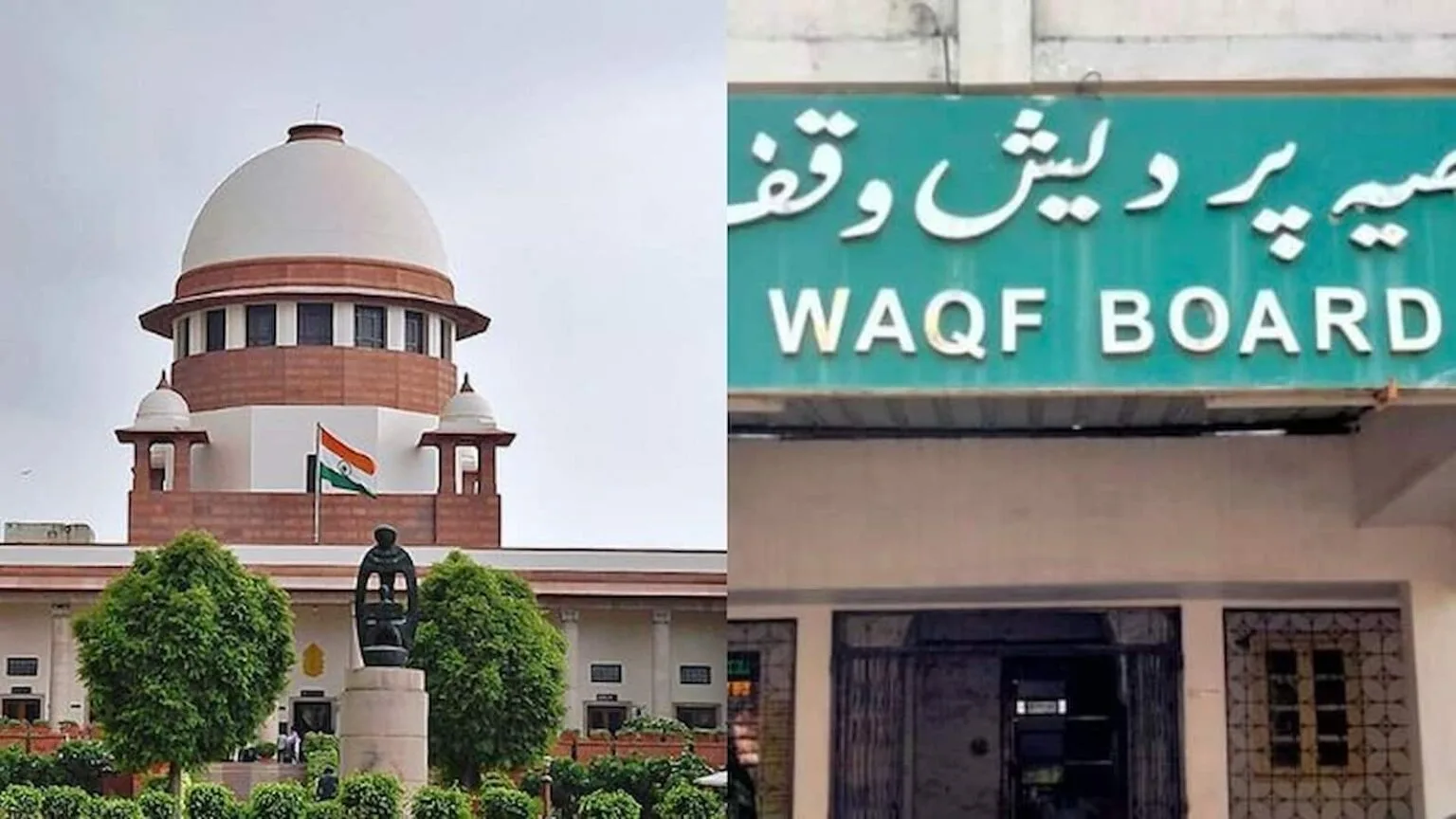A bench of Chief Justice of India B R Gavai and Justice Augustine George has heard all the parties and has reserved its verdict for an interim relief. On the Waqf (Amendment) Act. Today, the Court completed hearing the arguments of the respondents against the petitioners seeking an interim stay on the Act.
Solicitor General Tushar Mehta, appearing for the respondents, today defended the five-year religious practice condition for being eligible to create waqf land. He asserted that the declaration of one’s Muslim status is even mandatory under the Sharia Act. Earlier, Kapil Sibal questioned this, asking how one can prove oneself to be a ‘Muslim’. He also alleged that tribal lands are grabbed under the guise of waqf lands.
Senior Advocate Ranjit Kumar, citing Quran and Sharia, says that a person can only dedicate a property if it is their own.
Earlier, Kapil Sibal, appearing for the petitioner presented that the new Waqf Act means that the existing uses of the property, whether it be for schools, hospitals, burial, community centres, etc, would have to immediately cease and that there is restriction on demolition or on third-party’s rights in such properties during the inquiry period. He said that the government can unilaterally deem a property as non-waqf
“The 2025 amendments are a ruse to capture waqfs. Property can be acquired by the government through a legislative diktat, that too without payment of compensation, which is usual in cases of acquisition. These amendments directly encroach on a minority community’s rights under Article 25 (freedom of religion),” he argued.
In response to the petition, today Senior Advocate Gopal Sankaranarayanan, appearing for one of the respondents, argued that since the issue of essential religious practice has been raised, the matter will have to be referred to a nine-judge Bench.
Senior advocates Ranjit Kumar and Rakesh Dwivedi, appearing for the respondents, also raised concerns for the adjudicatory powers of the Waqf board, which is now removed in the new law questioned whether it is fair that ‘waqf by user’ can continue beyond hundreds of years.
The Waqf Amendment Act was passed on April 13, 2025. The Act made two seminal changes to the existing Waqf Act: one, by including non-Muslims in the Waqf boards and councils, and the other, by excluding ‘Waqf by user’ from the statutory definition. The Centre claims that the amendments were made to prevent the misuse of waqf provisions and to curb the encroachment on private land and government lands.
Next, the court witnesses an influx of petitions across the country challenging the Act. The Supreme Court states it will only hear five of the petitioners.
Opposition Leader and Congress MP Rahul Gandhi opposed the bill, criticising it as “an attack on the constitution.”
The Waqf (Amendment) Bill is a weapon aimed at marginalising Muslims and usurping their personal laws and property rights. This attack on the Constitution by the RSS, BJP, and their allies is aimed at Muslims today but sets a precedent to target other communities in the future,” he wrote on Twitter (now X).
Trinamool MP Mahua Moitra also slammed the bill, calling it “unfair”, and AIMIM chief Asauddin Owaisi called it a “blow to federalism”
Petitioners argue that removing these provisions means that the user does not decide the property rights and ownership for a property to become waqf. Instead, the removal can enable the property holding rights to rest with the state government or another private entity.
The former Act’s provision of ‘Waqf by User’ encompasses the transfer and enables users to hold Waqf properties. Wqaf land that is donated land, a personal landholding right, or a gifted land.
According to the petitioners, the removal of this provision would deprive historical mosques, graveyards and charitable properties, many of which have existed without formal waqf deeds, of their religious character.
In a written response to the petitions, the Central Government asserts that the inclusion of non-muslims in the Central and State Waqf boards will not in any way hamper the Muslim community’s rights under Article 26 (right to maintain and establish institutions for religious and charitable purposes) of the Constitution.
And for the exclusion of ‘Waqf by user’, the centre argues that this does not curtail the right to dedicate property to God, but merely regulates the form of dedication in keeping with statutory requirements.





























































